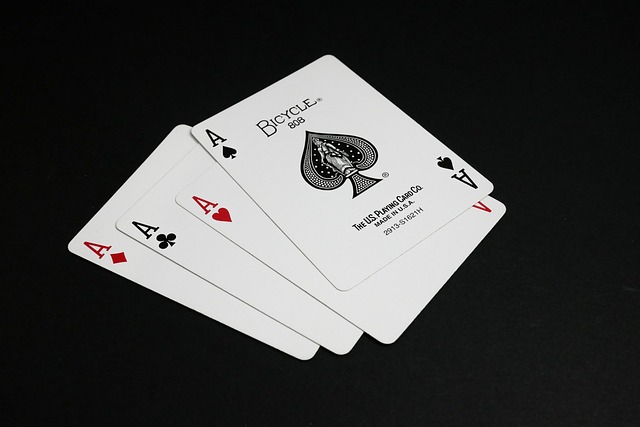Poker is a game of strategy, psychology, and skill—one that can be learned, refined, and mastered over time. But jumping straight into real-money games can be costly if you’re unprepared. Fortunately, there are several ways to practice poker online without losing money, allowing you to build your knowledge and confidence risk-free.
Whether you’re a complete beginner or a casual player looking to sharpen your edge, practicing poker without financial stakes is not only possible—it’s a smart approach to long-term improvement.
Use Free-to-Play Poker Platforms
One of the most accessible ways to practice is by using free poker apps and websites. Platforms like PokerStars, 888poker, and Zynga Poker offer play-money tables where you can join games without depositing any funds. These platforms simulate real poker dynamics and offer a wide range of formats including:
- No-limit Texas Hold’em
- Pot-limit Omaha
- Sit & Go tournaments
- Multi-table tournaments (MTTs)
- Heads-up challenges
The best part is you can experiment with strategies, positions, and bet sizing without the fear of financial loss. This type of environment helps you learn the mechanics of betting rounds, hand rankings, and pot odds with zero pressure.
Join Free Poker Tournaments
Many online poker sites and apps offer freeroll tournaments, which cost nothing to enter but often reward winners with small cash prizes, tickets, or site credits. These are ideal for:
- Gaining real competition experience
- Testing your game under time and table pressure
- Learning to manage your stack in multi-player formats
- Transitioning from casual play to more serious strategies
Freerolls mimic the pressure and pace of real-money games, helping you build tournament instincts and improve decision-making in a risk-free setting.
Play Against Poker AI and Bots

Some online poker platforms include the option to play against computer opponents or AI bots. These games usually run faster than live or multiplayer tables and allow you to:
- Practice hand reading and bluffing
- Observe how different playing styles affect outcomes
- Get quick feedback on your decisions
- Play multiple scenarios in a short amount of time
AI opponents can be adjusted in difficulty, making them ideal for beginners or intermediate players refining specific skills. Just remember, bots don’t replicate human emotion or unpredictability, so don’t rely on them exclusively.
Use Poker Training Tools and Simulators
Advanced players often use poker training software to practice specific concepts. Some of the most popular tools include:
- PokerStove or Equilab for equity calculations
- GTO+ or PioSolver for game theory optimal (GTO) strategy analysis
- Flopzilla for range construction and board texture evaluation
- Advanced hand replay tools to review past games
These tools often offer demo modes or free versions, giving you a sandbox to test strategies, study ranges, and simulate hands.
You won’t be betting real chips, but you’ll improve your understanding of probabilities, expected value (EV), and hand ranges, which is crucial when you finally move to real-money play.
Watch Streams and Analyze Live Games
Observation is a powerful teacher. Watching experienced players in action through Twitch streams, YouTube videos, or televised poker events can help you absorb valuable lessons on:
- Reading opponents and betting patterns
- Managing tilt and emotional swings
- Recognizing mistakes and missed opportunities
- Applying pressure at the right time
Many streamers explain their decision-making as they play, which adds context to their moves and deepens your understanding of advanced tactics.
Combine passive learning with your practice sessions to create a more complete training loop.
Join Online Poker Communities
Poker forums like TwoPlusTwo, Reddit’s /r/poker, and Discord poker groups are full of experienced players and beginners sharing hands, strategies, and advice. By joining these communities, you can:
- Ask questions and get feedback
- Post hand histories for analysis
- Learn from other players’ mistakes
- Discover new free tools or practice resources
Being part of an engaged community can accelerate your growth, especially when paired with consistent play and self-review.
Track Your Progress with Play Logs

Even if you’re not wagering real money, keeping a record of your sessions is essential. Log your wins, losses, mistakes, and notable hands to identify trends in your performance. Over time, this helps you:
- Pinpoint leaks in your game
- Evaluate the effectiveness of new strategies
- Measure improvement in critical areas like aggression or hand selection
- Develop personal discipline and patience—vital traits in poker
Using spreadsheets or apps designed for session tracking ensures you treat your play seriously, even in a free environment.
Final Thoughts
Practicing poker online without losing money is not only possible—it’s an ideal path for developing real skills. By using free-to-play platforms, participating in freerolls, training with tools, and analyzing your sessions, you create a foundation built on strategy, discipline, and experience, not costly trial and error.
Once you feel ready to move into real-money games, you’ll have the knowledge and confidence to compete effectively—and protect your bankroll. Until then, the practice ground is rich with opportunities to grow, and the only thing you’ll risk is your time and focus.
